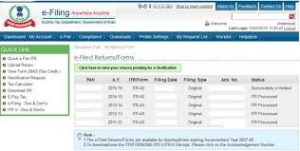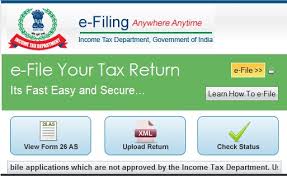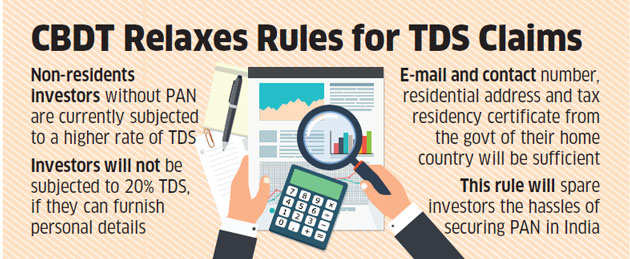The government on Thursday clarified that tax paid under the ongoing amnesty scheme for persons with undisclosed domestic assets can’t be reduced to an effective 31% from 45% prescribed by enjoying immunity not only for such income declared but also for the other undisclosed income from which the tax is paid.
The Income Disclosure Scheme (IDS) 2016 is the latest in a series of such windows opened by governments to address the scourge of black money and the second by the Modi government.
The government on Thursday clarified that tax paid under the ongoing amnesty scheme for persons with undisclosed domestic assets can’t be reduced to an effective 31% from 45% prescribed by enjoying immunity not only for such income declared but also for the other undisclosed income from which the tax is paid.
The tax department said its earlier answer to a query in this regard, where it said after a valid declaration is made under the scheme, it won’t make any “enquiry in respect of sources of income, payment of tax, surcharge and penalty”, was “limited to the conduct of enquiry by the department”; the clarification, the department said, was in no way intended to modify the tax rate.
The Income Disclosure Scheme (IDS) 2016 is the latest in a series of such windows opened by governments to address the scourge of black money and the second by the Modi government.
The government had found response to an earlier amnesty scheme for Indians with undisclosed assets overseas tepid. The IDS, under which declarations can be made between June 1 and September 30, 2016, provides persons with hidden income a chance to declare such income/assets and pay tax, surcharge and penalty totalling 45% and enjoy immunity.
What necessitated the latest clarification by the I-T department is an interpretation by sections of analysts that its assurance that no enquiry will be made into “the sources of income, payment of tax” allowed one to pay the 45% tax on the fair market value of the declared asset (immovable property) and claim immunity with respect to not only this asset but an additional one equivalent to 45% of the declared asset as “the source of payment of tax”.
Effectively, this would have reduced the tax rate (including surcharge and penalty) on the assets declared plus the source of income for tax payment to 31%. However, the department has now said this has never been the intention.
Giving the example of a person declaring Rs 100 lakh as undisclosed income (as fair market value of immovable property as on June 1, 2016) under the scheme and paying the stipulated 45% tax on it from her “other undisclosed income”, the department has said:
“To get immunity under the scheme in respect of the entire undisclosed income of R145 lakh, the declarant has to declare undisclosed income of R145 lakh (R100 lakh being the undisclosed income represented by the immovable property and R45 lakh being the payment made from undisclosed income), and pay tax, surcharge, penalty under the scheme amounting to R65.25 lakh, ie, 45% of R145 lakh.”
Meanwhile, in recognition of the concerns raised by many quarters that the initial deadline (November 30, 2016) for making payments under the scheme was very tight and force people to make distress sale of assets, the government has revised the schedule for payments:
As per the new schedule, a minimum amount of 25% of the tax, surcharge and penalty will have to be paid by November 30, 2016; a further amount of 25% of the tax, surcharge and penalty by March 31, 2017; and the balance on or before August 30, 2017.







